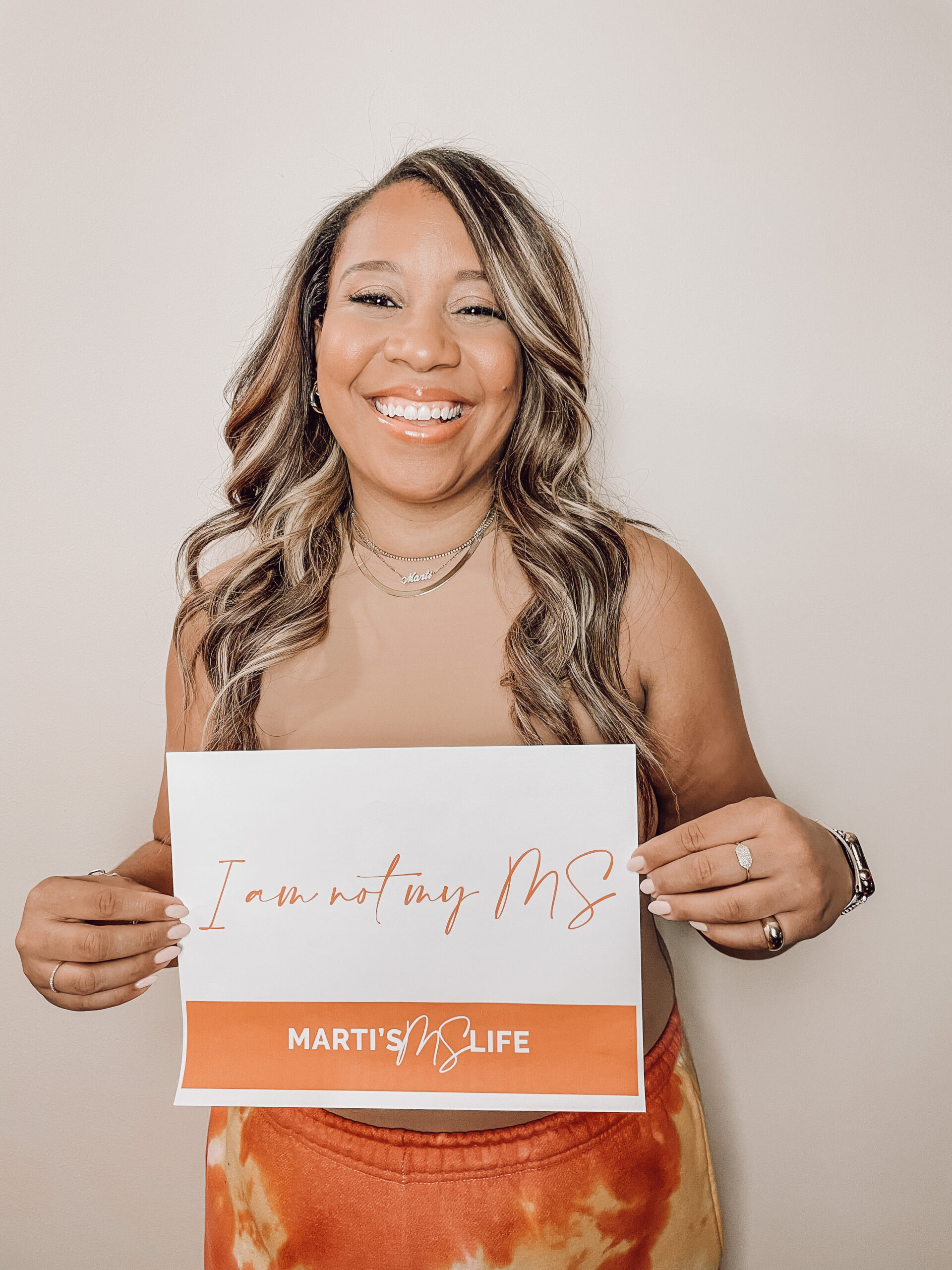
One morning in 2018, Marti Hines woke up to something she never could have imagined. She discovered that the left side of her body was completely paralyzed.
A few weeks prior, she noticed tingling in her extremities; however, she didn’t give it too much thought because she thought it was a result of traveling.
At the time, she was 35 and on a family vacation.
“When I woke up paralyzed, I felt a sharp pain and then the paralysis set in and I was terrified. We weren't sure what was wrong with me. The emergency room doctors initially thought that I perhaps had a stroke, but cognitively I didn't have any other symptoms that normally happen when someone has a stroke and so there was just a lot of fear and urgency on the emergency room doctors, which really played a part in my mental state because I just didn't know what was going on and I was really scared,” Hines recalls.
Hines didn’t officially learn what was going on with her until she was transferred to a larger hospital to undergo an MRI.
“A nurse came in to tell me that I was being admitted to the hospital because it looked like I was presenting with signs of having MS (multiple sclerosis),” Hines adds.
Although Hines recovered from the paralysis, she was diagnosed with relapsing-remitting multiple sclerosis (RRMS).
RELATED: Day 1: Just Been Diagnosed with MS

A place of denial and isolation
Hearing the words MS come out of the nurse’s mouth confused Hines. Although she had heard of the disease, which impacts the brain, spinal cord, and optic nerves, she didn’t really know what it meant.
“Like everyone in this day and age, I went to try to research on the internet myself and I was even more terrified by what I found when I Googled. It was just a really traumatic and scary time for me with just so much confusion and denial because I had never been in the hospital before and I didn’t think that anything was wrong with me. It was really hard for me to accept that this was something that was even happening to me,” the 39-year-old shares.
The diagnosis began to take a toll on Hines’ emotional and mental health.
“I just didn't feel like I had these symptoms. I had never been seriously sick before and to find out that I now have this disease that, worst case scenario, I've seen so many people losing their ability to walk, their ability to see speak,” Hines adds. “It was so terrifying and also very isolating because you know MS wasn't something that was largely known, at least around my friends and family and so I just didn't feel like there was anyone that I could talk to about it.”
In doing research about MS, all Hines saw were middle-aged white women, which made Hines, who was neither white nor middle-aged, feel even more isolated.
“I think that when you're in a place of such fear but also pain and you're sick, I think that it can really start to wear on your mental health and I know that I felt myself just kind of retreating from within and really not even being able to articulate [to] even my closest circle what it was that I was going through because I wasn't even sure myself,” the film producer, entrepreneur and founder and CEO of Merit Haven says.
RELATED: What You Must Know About Relapsing MS

Representation matters
Although MS was once believed to be a white disease, recent studies have shown that the rate among Black Americans is consistent with the rate of MS in white Americans, according to the National Multiple Sclerosis Society.
Unfortunately, Black people are often underrepresented in multiple sclerosis research.
Because of this, Hines realized that she would have to not only be her own advocate, but also the Black face and voice of MS that she had hoped to see when she was researching the disease.
“... I really became an active participant in my disease. I really started coming to my doctor's appointments with notes and with questions and realizing that I [had] to really advocate for the type of care that I deserved. And it's really unfortunate that the Black community has to be fighting against this in addition to dealing with being chronically ill,” says Hines, who is working in partnership with Genentech’s #MSVisibility campaign to raise awareness on the mental toll this disease has on patients. “I'm really happy and proud and pleased to see that Genentech is taking the time to use their platform to shed light and to uplift Black voices– Black people that are living with multiple sclerosis so that people can see that this is not just a white woman's disease. There are Black people–Black women that are carrying this as well and I'm just so grateful that I'm starting to see more of that being told.”

To further amplify the Black voices living with MS, the Los Angeles-based filmmaker also launched Marti’s MS Life in 2019.
“I am a filmmaker and it was really kind of organic and authentic for me to decide to document my journey with MS. As I mentioned earlier, when I was researching the disease and looking things up, I wasn’t seeing a lot of representation. I wasn't seeing young women [who] looked like me that were living with this and so I was like well I could be one of those voices and just talk about the different effects this disease has on people of color,” Hines shares.
Marti’s MS Life also sheds light on the different reactions people of color have to medications. “...It's helped others. It has been so cathartic for me to be able to release and talk about and just share what it is that I'm going through. It's been an outlet for me as well. It's also just been such a big support for me,” Hines shares.
According to the National Multiple Sclerosis Society, Black people with MS might have more aggressive disease progression and greater disability. This includes:
- More walking, balance, and coordination problems
- More cognitive and visual symptoms
- More frequent relapses with poorer recovery
- Earlier disability onset
RELATED: Why Do Black Patients Fare Worse When MS Strikes?

How MS affects Hines' mental health
On an average day, Hines has to navigate both the physical symptoms of MS and the toll it plays on her mental health.
“…They really go hand in hand…You wake up every day and kind of have to do a body check to see where your symptoms are at that day…Am I able to move my toes? Am I able to move my legs up? How's my vision today? Do I feel like I have balance? What's my pain level? All those things happen before I even get out of bed,” the filmmaker shares.
The up-and-down roller coaster has also caused Hines to battle personal gaslighting.
“To not know what your day has in store for you or the fact that your day could start off a little stronger and then deteriorate really quickly to where you are in bed for the rest of the day or find yourself on the floor in pain– it really affects your mental health as well because you feel as if you've lost whatever control that you think you might have had over your body,” she notes. “There's so much that I want to do in a day that MS doesn't allow me to and so when those symptoms start to flare up and I'm not able to do the things that I want to do, it absolutely then turns into a domino effect and just how I feel about myself that either I'm weak or I'm not strong enough.”
How Hines overcomes mental health challenges
Although she may find it challenging on some days, Hines has developed some tools that help her overcome those challenging days:
- Giving herself grace: “I always just try to remind myself that my best each day is more than enough and to give myself grace. So if it turns out that the day that I had planned doesn't happen and it turns into a day that I am just in bed, that's OK."
- Not pressuring herself: Hines reminds herself to not put pressure on herself to be who she was before she had MS. “I'm not that person anymore, and that doesn't have to be a bad thing. It's just embracing who I am now, which is someone that is more intentional. I'm much kinder. I listen more. I listen to my body. I extend grace to others.”
- Finding a safe space: Hines advises finding a safe space. This can be your friends, family, or a therapist. “It's OK to be really sad sometimes. It's OK to be angry. “It's OK to have all of those feelings. I just always urge anyone that I talk [to] with MS [to] try not to stay there for too long.”
“..It takes a certain type of strong to be living and thriving with this disease, and so I’m honored and humbled and proud to be a part of this community. My family and God help me so much with being able to greet each day with some positivity, and I do believe that in my lifetime I will be able to say that I used to have MS, and I really hold on to that,’ Hines says.

RELATED: Managing Symptoms of MS: A Guide for Patients and Caregivers
Tips for those who are living with MS or have a family member living with MS
- Find a support system: “I'm so grateful to say that I have such an amazing support system when it comes to everything that I deal with on a daily basis. They're always there to listen, and sometimes I think when you're living with MS you just need that validation of someone to tell you that they see you and they hear what it is that you're going through.”
- Find a way to support your loved one living with MS: “Just being able to listen– offering anything to make their day a little bit easier and make their load a little bit lighter–whether offering to run an errand for them [or] sending them a little trinket in the mail to let them know you're thinking of them– supporting them and taking them to doctor's appointments.”
- Find ways to manage your pain: “I'm always trying to find ways to ease my pain and make my day a little bit lighter so whether that's going to get a massage, going to a movie, sitting and napping. Whatever it is to bring my stress level down and just provide me a little bit of relief, I'm always for it and I urge everyone to try to find that for themselves as well.”









